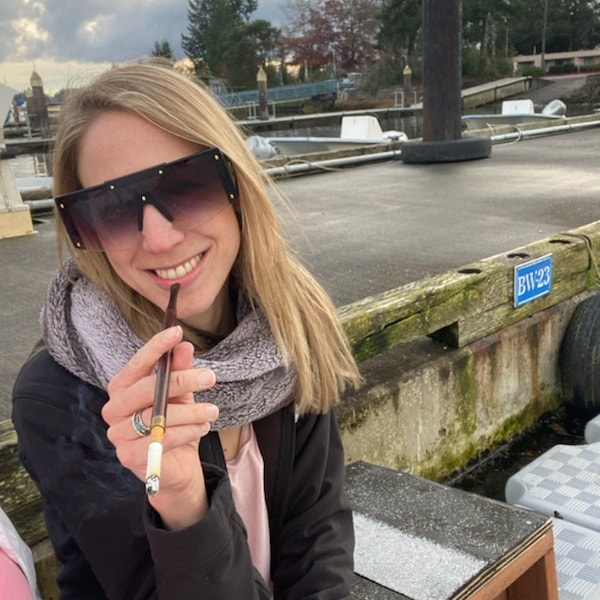The Horrific Tale of National Trauma
- Melissa Robbins

- Oct 31, 2025
- 4 min read
Updated: Nov 9, 2025

Good morning everyone and Happy Halloween! I usually post something about a local haunt, cursed object or superstition on Halloween… but today I want to talk about a horror that we are all living and experiencing today: National Trauma. Trauma happens when we become deeply overwhelmed by a distressing situation or event that shatters our sense of comfort, security and safety.
Trauma is experienced through the four F’s: Fight, Flight, Freeze or Fawn… and the way we move through life after the trauma, tells a story of what we experienced at the time. If we were trapped during the traumatic event, then we often become stuck in the trauma loop of unfinished business. We were unable to safely run from harm, so our brains become stuck in that moment; reliving the trauma over and over as though is was still happening in the present. If we were able to safely get away, the stress and pain-relieving hormones adrenaline, dopamine, cortisol and endorphins, have a hard time coming back down to a normal range and we continue to secrete these hormones long after the event has taken place, even if we are in a place of safety. The very personal traumatic experiences we have as we move through life, tell a story about our past as well as our present: why we struggle to trust people, why we can’t open up to others, why we self-sabotage, why we can’t grow or move past a certain point in our lives, why we struggle to hold a job or relationship, why we abuse drugs and alcohol, why we develop an eating disorder or an obsessive habit… The list goes on and on, telling the deep-rooted story of our autobiographical makeup.
Much like our own individual trauma, we also share trauma collectively. When we experience a collective trauma, like war, a terrorist attack, assassination, pandemic, natural disaster, or state of emergency… the backbone of our community becomes shattered. The safety, security and support we trust and rely on becomes fragmented as we try to grasp or make sense of what has happened.

As we desire to feel safe, secure, supported and loved in our homes, we also desire this from our community and society as a whole. When something tragic happens, like 9/11, the Covid 19 pandemic, the assassination of Charlie Kirk, or the stabbing death of Ukrainian Immigrant Iryana Zarutska, we become shocked as a nation; frozen in time. Our national identity becomes shattered as we try to make sense of it all.
What have we become as a society where people are being gunned down or stabbed in the streets, where stranger-on-stranger crime is the norm, where children are sent to school wearing masks, or not being allowed to go outside and play…
These questions haunt us as a nation; and much like our own individual trauma, we become stuck… I’m sure we can all remember where we were when 9/11 happened, how we felt, the conversations we had, and the very visceral and physiological reactions we had when we became aware of a threat to our nation and our world as we knew it.
Will we ever be safe again? Can we trust the stranger walking alongside us on the street?
Much like our own individual trauma, when we experience collective trauma, we all react differently. Some of us become outraged and demand protest, shouting for someone to be held accountable, others become numb and seek refuge in the only place they feel safe, often becoming agoraphobics, and refusing to be part of society in general. Still others become depressed and abuse substances to numb the pain and "check-out," losing hope in our future and a society we once trusted. Whichever way you cope, we all participate in one way or the other by utilizing one of the four F’s: Fight, Flight, Freeze or Fawn. All these things are a response to the trauma we experience as a nation daily. When we are living our day-to-day lives in survival mode, rather than being able to thrive and live in the present moment, we become fully engaged in worrying about the future and our actions become solely about what we can do today to survive and live with the bare minimum. Just as with individual trauma, there are ways to engage and heal in the face of a national crisis or trauma. Communicating with others and telling stories about our own experiences is important when faced with collective trauma. As the world questions our safety and threatens to divide us, we must find common ground in which to connect and empathize with one another.

We can join support groups and become involved in our community or simply get out of our head by communicating with someone outside our friend circle. The most important thing is to find collective healing amid collective trauma; heal through connection and shared experiences. I was reminded the other day of two ways we can respond to something traumatic or tragic: F.E.A.R Face Everything and Run or… F.E.A.R Face Everything and Rise!
Feel free to share your thoughts ❤️
Have a lovely day everyone!



Comments